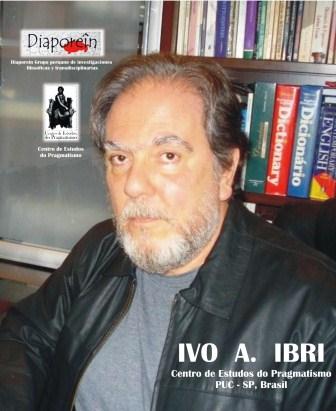Logic, Inquiry, and Discovery: Peirce’s vision of Logic and
Center for Pragmatism Studies
The interest in Peirce’s ideas about logic and scientific inquiry is constantly increasing. Acknowledged as the “father of pragmatism” and as one of the founders of predicate calculus, simultaneously with and independently of Frege, his ideas have known more and more interest. But, even if Peirce’s conception of logic as “semeiotic” is often quoted as innovative and heterodox, they are more often still misunderstood and misapplied. This tutorial aims at introducing Peirce’s views of logic as semiotic within the broader context of his philosophy, in order to highlight the originality and peculiarity of his views. According to Peirce, logic, or semiotic, is the necessary, or quasi-formal study of signs. As such, it is one of the three normative sciences – esthetics, ethics, and logic – and its main branches are: A) Speculative Grammar, or the study of the nature and meanings of all means of expression; B) Critic or Speculative rhetoric, or the study of the classification and determination of the validity and force of all arguments; and C) Methodeutic, or the study of methods of investigation. In order to clarify such distinctions, this tutorial will present: 1) Peirce’s classification of the sciences and the place of logic within it; 2) An introduction to Peirce’s semiotic, with special attention to speculative rhetoric and methodeutic. The main themes to be dealt with are:
3) Semiotic, pragmatism and the possibility of metaphysics.
Bibliography The following is just a basic bibliography. More titles will be indicated during the tutorial. Brady, Geraldine. From Peirce to Skolem: A neglected chapter in the history of mathematical logic. 1ª ed. Amsterdam: Elsevier Science B.V., 2000. Houser, Nathan; Roberts, Don D.; Van Evra, James (ed(s).). Studies in the Logic of Charles Sanders Peirce. Bloomington; Indianapolis: Indiana University Press, 1997.
|
Ibri. Ivo A. Kósmos Noētós: A arquitetura metafísica de Charles S. Peirce. São Paulo: Perspectiva; Hólon, 1992. Moore, Edward C. (ed.). Charles S. Peirce and the Philosophy of Science: Papers from the Harvard Sesquicenntenial Congress. Tuscaloosa and London: The University of Alabama Press, 1993. Moore, Matthew E. (ed.). New Essays on Peirce’s Mathematical Philosophy. Chicago and La Salle, Il.: Open Court Pub. Co., 2010. Peirce, Charles S. Collected Papers of Charles Sanders Peirce. Ed. by: C. Hartshorne & P. Weiss (v. 1-6); A. Burks (v. 7-8). Cambridge, MA: Harvard University Press, 1931-58. 8 vols. Rodrigues, Cassiano T. The Method of Scientific Discovery in Peirce’s Philosophy: Deduction, Induction, and Abduction. Logica Universalis, vol. 5, number 1, p. 127-164, 2011
| ||||
